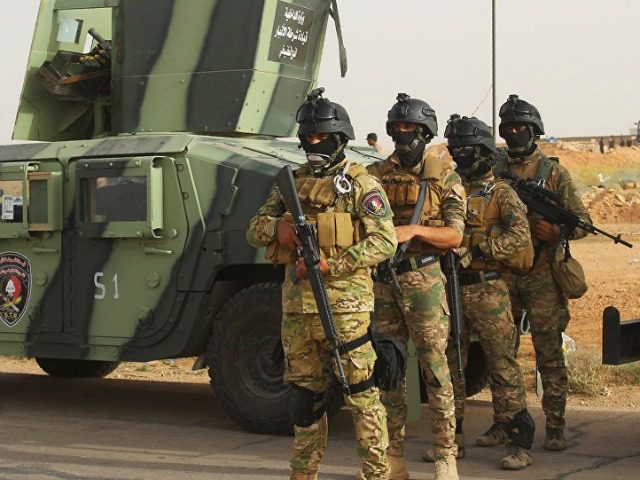WASHINGTON, D.C. — Nearly all the pieces have fallen into place for the U.S.-backed Iraqi forces to make a push to recapture Mosul, the de facto Iraqi capital of the Islamic State (ISIS/ISIL) that has been described as the jihadist group’s last remaining stronghold in the country, declared a top Obama administration official.
Nevertheless, he warned that Mosul is “one of the most complex challenges ahead of us,” adding that is where ISIS leader Abu Bakr al-Baghdadi declared his “Caliphate two years ago.”
“It is where we will put one of the nails into the coffin of that phony Caliphate,” he declared.
Brett McGurk, President Barack Obama’s special envoy for the anti-ISIS alliance led by the United States, made those comments Tuesday, at an event with Iraqi Foreign Minister (FM) Ibrahim al-Jaafari hosted by the U.S. Institute for Peace.
McGurk has been painting ISIS in Iraq and Syria as a weakening terrorist group on a downward spiral, despite the spate of attacks linked to the jihadist organization that killed and wounded hundreds during the holy Muslim month of Ramadan, as well as before and after. The Obama administration argues the attacks show ISIS is desperate.
Referring to the Mosul operation at Tuesday’s event, McGurk said, “In many ways our campaign is now ahead of where we thought it would be at this time.”
“Mosul is now upon us,” he added, noting that the Iraqi Security Forces have not lost a battle in more than a year and are increasingly showing confidence and capacity.
“I’m encouraged because the military side of the campaign is now coming together,” declared McGurk. “We’re determined, as everybody knows, to do all we can to defeat ISIL, or Daesh, and we will defeat them.”
In Iraq, some officials also appear to be confident about pushing ISIS out of Mosul, an effort that has been underway for months. Mosul, the capital of Nineveh province, is the country’s second-largest city. It fell into the hands of ISIS in June 2014 and remains the largest city controlled by the terrorist group.
Voice of America (VOA) reports:
No one is suggesting the fight to recapture the city, the Iraqi capital of the terror group’s self-declared caliphate, will be easy. But there is a sense that momentum has clearly swung in favor of Iraqi forces backed by U.S. and coalition air power — and that now is the time to press the advantage.
Iraq’s FM Jaafari voiced confidence on Tuesday, referring to Mosul as “the next target” through an interpreter.
Mosul “is the last hideout for Daesh [ISIS] in Iraq,” he added.
Both McGurk and Jaafari conceded that retaking the Sunni stronghold from the Islamic State, also known as IS, will be no easy task.
VOA notes:
Neither McGurk nor Jaafari was willing to put a timeline on possible Mosul operations, acknowledging any effort to retake the city would be complicated, with setbacks likely.
Among the key challenges are the size of Mosul’s remaining civilian population, thought to be around 1 million, and the dense urban terrain, raising the prospect for a possible block-by-block fight through booby traps and human shields.
Additionally, despite having lost considerable ground to coalition-backed forces in Iraq, IS has had plenty of time to prepare since first taking Mosul in June 2014.
VOA learned from an Iraqi Sunni militia leader that ISIS has amassed up to 8,000 jihadists to defend Mosul.
“We can say that there are less than 10,000,” noted Atheel al-Nujaifi, a former governor of Nineveh province, who heads Iraq’s Hashid Watani (National Mobilization) militia and its approximately 4,000 fighters.
“The information coming from inside Mosul says that most of the [ISIS] foreign fighters are leaving these days,” he said, noting that there is growing resentment against the Sunni terrorist group inside the Sunni-majority city. “The people of Mosul want indeed to rise up against Daesh.”
According to the Pentagon, taking Mosul will require between 8 and 12 Iraqi brigades — more than 20,000 troops.
“We can begin the operations, but taking and securing Mosul in the next eight to 10 months is not something I’m seeing in my crystal ball,” the Defense Intelligence Agency director, Lt. Gen. Vincent Stewart, warned U.S. lawmakers in March.

COMMENTS
Please let us know if you're having issues with commenting.